Computational Couture
https://www.emiliapucci.com/week-6-computational-couture

Inspiration
For this class, I'm really inspired by reptile's skin and the possibilities of reproducing an abstraction of the piel de tolok - the iguana's skin. This inspiration comes by the tolok - mayan for lizards that run around the Fablab's backyard. They are quite big and they captured my attention for the uneven ruggedness of their skin.
From a geometrical point of view, I wanted to keep some continuity with the seamless patterns I created in Week 3 , utilizing triangles and/or hexagons to design the tolok's skin. In order to gather some further visual inspiration, I created a small Pinterest board that I will enrich as we move forward.

MAKING FRIENDS WITH GRASSHOPPER
Let's be honest, Grasshopper for Rhino is not exactly the easiest program in the world :) But I really enjoyed Aldo's tutorials and I went through a couple more in order to better familiarize with the concept of parametric design and how to apply it to my design within the realistic timeframe.
Being a newbie, I was fascinated with attractor points and pretty much just followed the tutorials step by step, without much questioning. Grasshopper for Mac has definitely some limitations but I was able to do most of the things I needed.
Here is a list of what I watched and therefore familiarized with:
Grasshopper Tutorial Video 001
Here is the link
After the information overload on Thursday, I decided to go back to basic following a tutorial which explained how to build a honeycomb structure in a very basic way. The tutorial was useful to better understand booleans and extrusions and I used it for my first 3D printing trial with Ninjaflex (see more below). Ultimately what was useful was just a bit of a recap on basic functions in Grasshopper. Maybe too basic..
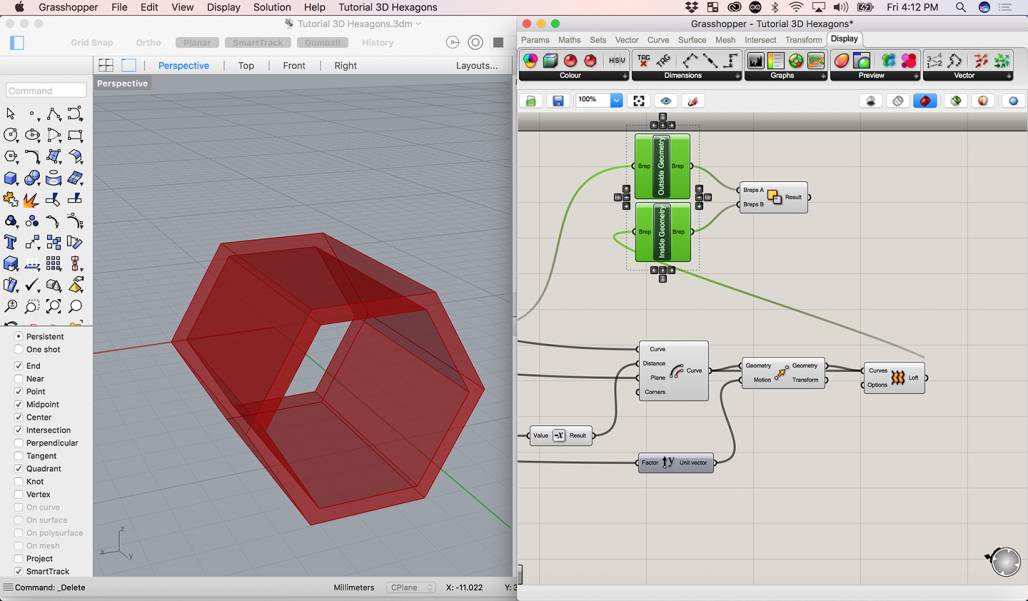
Fabricademy Computational Couture Lecture - rewatched the video, slowly..
Here is the link (I know you all know where it is :)
I really appreciated the clarity in which ATTRACTOR POINTS are explained, with explanation of why things are done in a certain way, as well as Spiral Design concept from Neil Gershenfeld.

FIRST 3D PRINT TRIAL WITH NINJAFLEX
With the file I created doing the tutorial on creating a honeycomb structure, I made a small 3D print trial using Ninjaflex**, to test the material for the first time.
3D print Recipe
Ingredients
- .stl file of the honeycomb structure - created with Grasshopper
- black ninjaflex
- Proyectil 3D printer
Instructions
1. Make the Grasshopper File (and save it periodically)
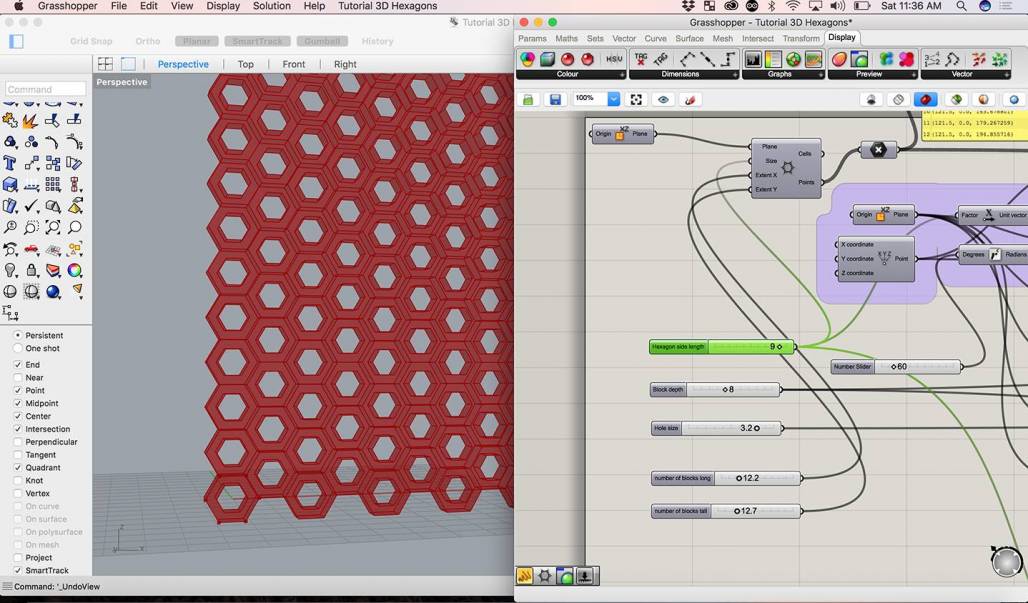
2. Bake the Grashopper shape and export the surfaces from Rhino to .stl file.
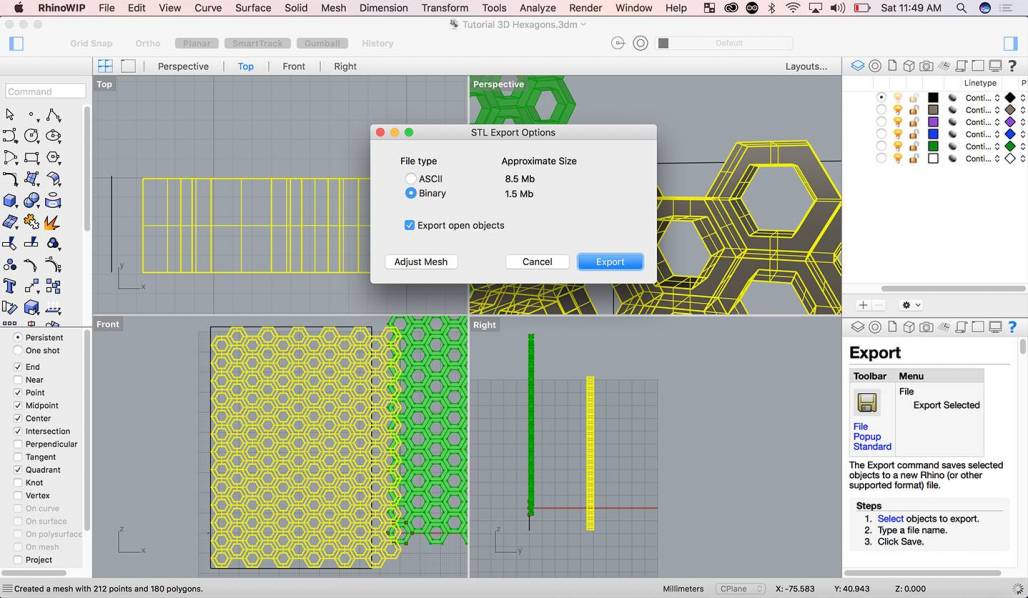
3. Slice the .stl file in Repetier, configuring the settings for Ninjaflex
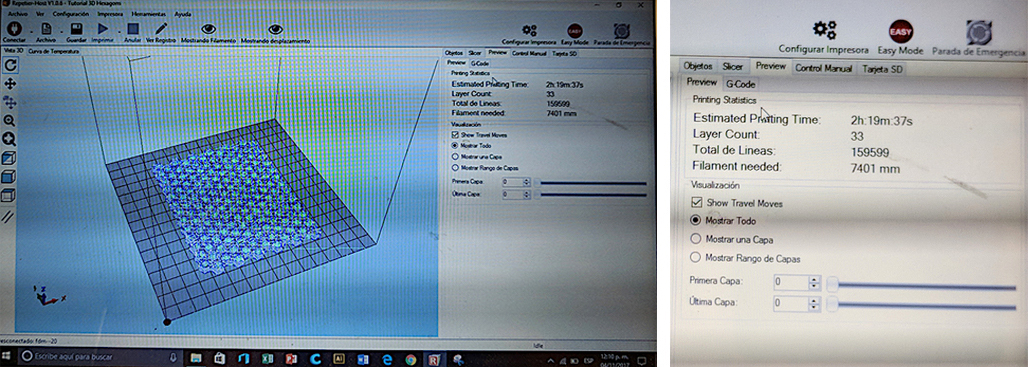
4. Print the honeycomb structure with:
- 235 degrees C nozzle temperature
- 80 degress plate temperature
- Ninjaflex black filament
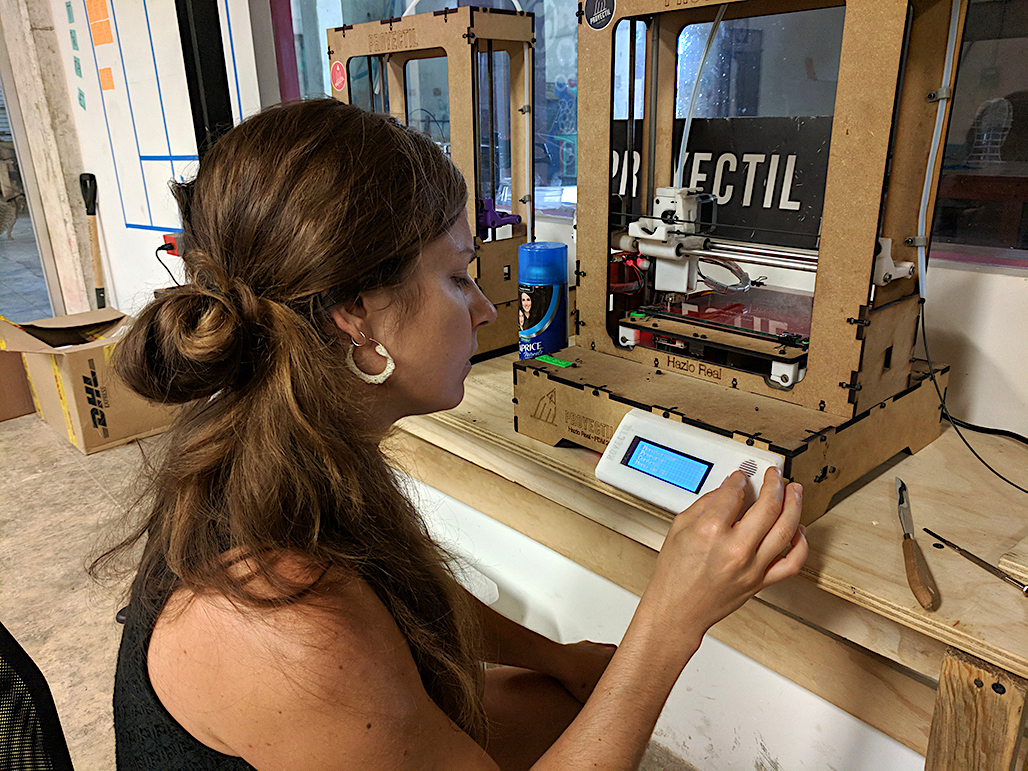
The printing timing was planned to be 2:19 initially, but the print was going too quick and we decided to decrease the speed of the print. In the end it took about 4 hours to print 3/4 of the honeycomb, which is 100 x 80 x 3 mm. At about 3/4 of the object's print, the printer gave an ERROR and it stopped.
So this is the final result :)
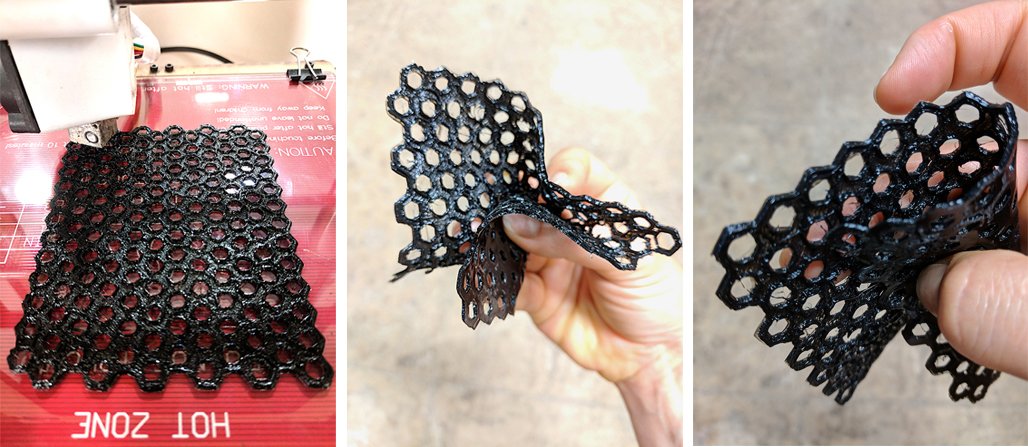
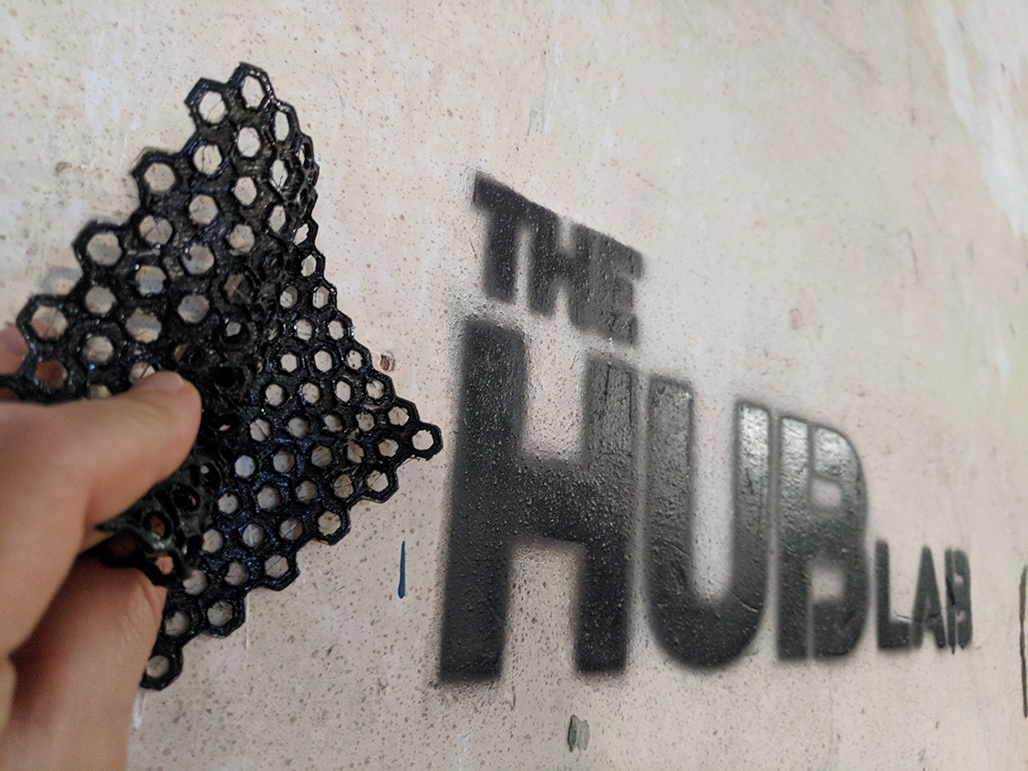
3D MODELING THE TOLOK SKIN
For the final project, I decided to model some kind of spikes resembing the tolok's skin. I was still deciding if to make the spikes/scales as triangles or hexagons, and then I found a tutorial that made it easier to make a series with hexagons.

Here is the tutorial I used to inform the design.
What I found interesting in this tutorial is the ability to make the height of the hexagonal pyramid-like scales variable, according to a curve.
I also tried to add an attractor point using the tutorial from Aldo, but I got stuck as it wasn't working properly so I gave up (only for now). I will try in the next iteration.
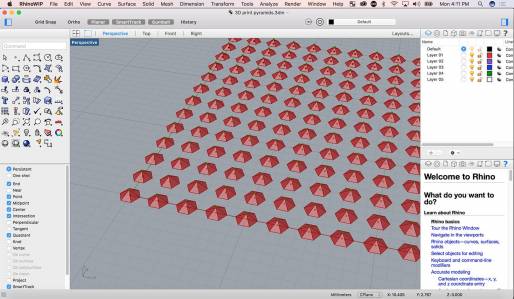
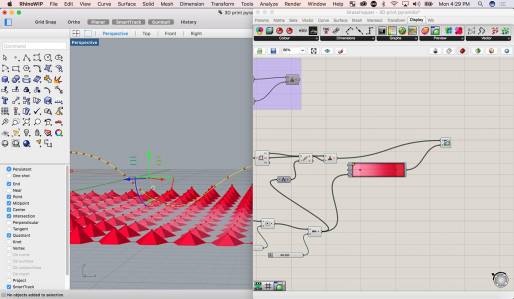
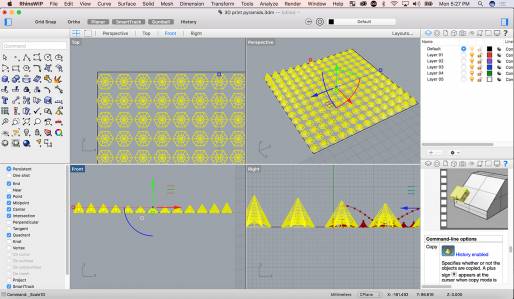
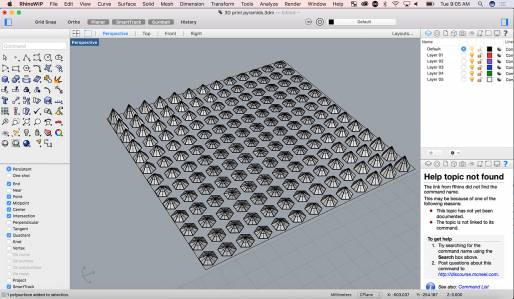
I scaled the model to be 140 x 140 X 9 mm and exported it to .stl.
3D PRINTING THE TOLOK SKIN
Time to print again :)
MATERIAL
- Black Ninjaflex on Black Organza
3D PRINTER
- Proyectil
SLICER
- Repetier
PRINT SETTINGS
- Extruder Temperature - 225℃
- Bed Temperature - 60-65
- Speed is variable - 25mm/s
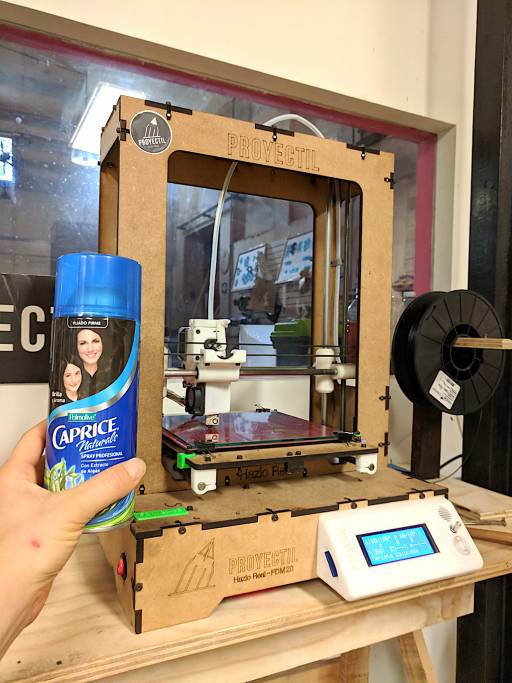

Sadly, after 10 min the 3D printer stopped working and we tried to fix it but there were some substantial issues with the nozzle, so we left it half way done.
Will try a further iteration:)
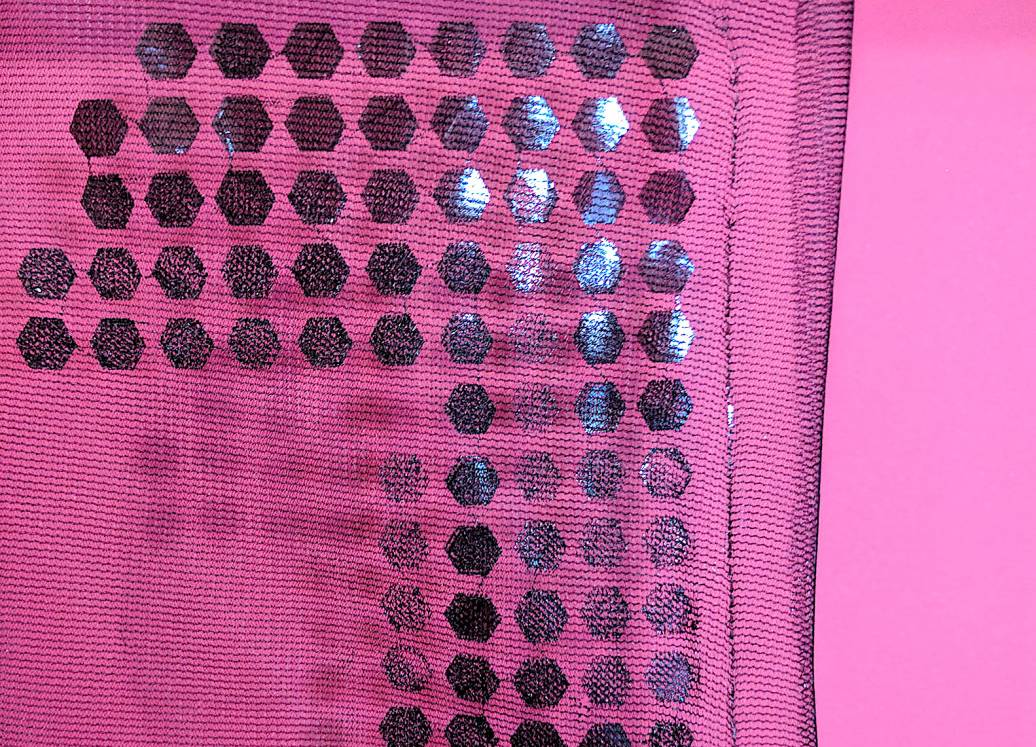
REFLECTIONS & NEXT STEPS
After the feedback session with Aldo and Anastasia, I realized that the work done, although it might not have been printed all the way through as I wished, was a good progress. Perfection doesn't exist but perfectionism does, and I am working on focusing on iterating rather than nto being happy with one result :)
So NOW.. The Proyectil was fixed (nozzle was just majorly stuck) and we managed to print the whole file
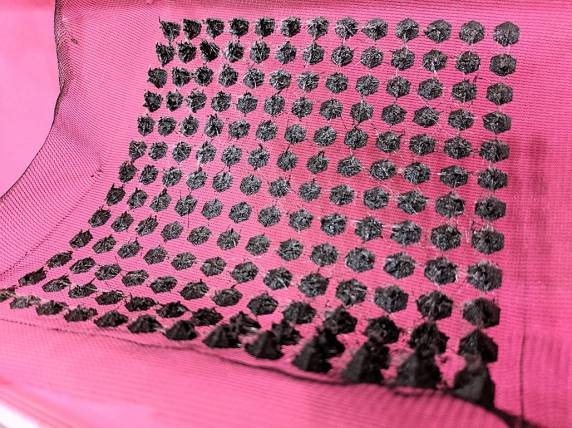
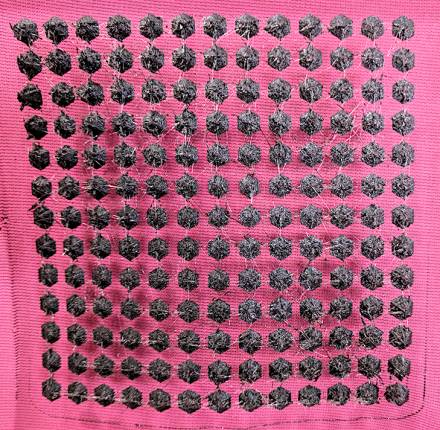
After seeing the final result my reflections are the following:
- The difference in height is not too visible nor tangible, so I will play with larger variations
- The texture is definitely too regular, so I will implement the attractor points to make the hexagons in different sizes
- Given the wide spaces between the hexagons, it's quite irrelevant weather the material in Ninjaflex or not. Ony in case it was an application on a garment the softness might be a desirable effect rather than solid pointy spikes.
NEXT STEPS
- Closer hexagons to utilize Ninjaflex affordances at their best
- Attractor points to implement an irregular surface texture
- Greater height difference, just to make the tolok look more real ;)
Hereyou can find the Rhino + Grasshopper definition I made for the hexagonal pyramids.